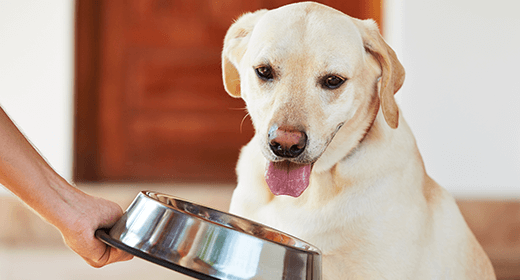

Unlike larger-breed dogs that are considered mature or senior at age 5, small-breed dogs usually don’t experience age-related changes as early. But by age 7, your small dog is mature or senior, and his nutritional requirements are changing. You can help keep your dog active, happy and healthy with a specially formulated mature diet that delivers highly digestible, enhanced nutrition.
The changes your small dog is going through affect him in many ways. You may notice a dull, dry coat and flaky skin, energy loss or weight gain, more frequent intestinal problems, joint stiffness and a loss of lean muscle mass. It’s true that an aging dog may require fewer calories, but your mature or senior dog still needs high-quality protein and carefully balanced nutrients.
What your dog needs is a high-quality, balanced maintenance food formulated for a small dog’s changing metabolism. Look for options with these age-essential nutrients:
These ingredients are the keys to mature nutrition whether you feed dry or wet dog food or give your dog treats.
Additionally, small dogs have small mouths and small stomachs. A nutrient-dense mature formula with smaller kibble may help make food easier for your dog to chew.
Older, less-active dogs are prone to weight gain. Keeping your dog at a healthy weight can help minimize the risk of developing diabetes or joint stress. Your dog can benefit from a weight-control diet with these key ingredients:
While your mature or senior dog’s nutritional needs may be changing, that doesn’t mean he doesn’t have many active, happy years ahead. Make sure your dog can make the most of them by feeding him a proper diet designed for mature small-breed dogs.




So as a pet parent, how do you make sure your Lab is eating well-rounded meals? One way to do that is to find dog food that is tailored to suit the Labrador diet. The best dog food for Labrador Retrievers will always contain the following elements…
Labrador food should always include lean and quality proteins from sources like poultry to help strengthen and maintain their muscles.
Ingredients like beet pulp, corn, wheat, barley and maize are not only packed with nutrients but they also aid digestion. Labrador food that contains digestible ingredients helps when it comes to supporting a healthy gut.
Moderate and controlled amounts of fat in addition to Omega 6 and 3 fatty acids are necessary to support a healthy coat as well as healthy skin. These ingredients are important for Labradors to ensure they do not suffer from issues like flaky and itchy skin.
Labrador Retrievers are susceptible to obesity. Therefore, an important supplement to look for in Labrador food is L-Carnitine. L-Carnitine is known to help with metabolism and also supports healthy weight management.
Labradors are fun, playful and active dogs. To facilitate these characteristics, the labrador diet must consist of supplements like Glucosamine and Chondroitin Sulphate that support healthy joints.
If you’re looking for dog food that is specific to the Labrador diet, IAMS™ Labrador Retriever dog food will not let you down. It is a premium-tailored recipe that contains all the ingredients that support the unique nutritional requirements of a Labrador Retriever. By switching to this dog food, you are ensuring your Lab is at its healthiest and best, always!